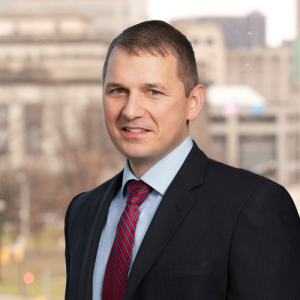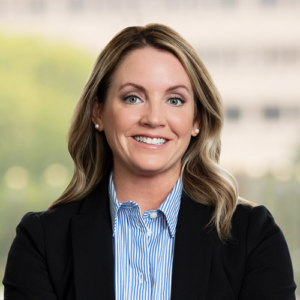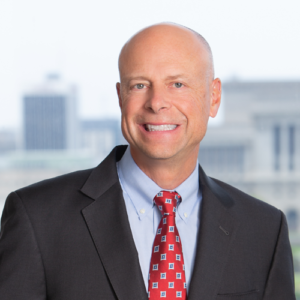Private Equity in Health Care: A 15-Minute Discussion of Key Compliance and Fraud & Abuse Issues
In this episode of Hall Render’s “Health Regulatory Update,” Joe Wolfe discusses compliance and fraud and abuse issues related to private equity investments with his colleagues Scott Taebel and Erin Drummy. Areas covered include the uptick in activity in the health care private equity landscape, potential compliance and enforcement risk for private equity firms, the importance of focusing on compliance/regulatory due diligence and the importance of going into any new transaction with eyes wide open.
Podcast Participants

Joe Wolfe
Attorney, Hall Render
Health Regulatory Practice Group Leader

Erin Drummy
Attorney, Hall Render

Scott Taebel
Attorney, Hall Render
Joe Wolfe: Hello, and welcome to Hall Render’s Practical Solutions, podcast and healthcare regulatory update. I’m your host Joe Wolfe. I’m an attorney with Hall Render. We are the largest healthcare focused law firm in the country. And today we’re discussing compliance and fraud and abuse issues related to private equity investments. Today’s podcast comes from Hall Render’s healthcare regulatory practice group, which covers our advocacy compliance fraud and abuse and litigation service lines. I have Scott Taebel and Erin Drummy from our fraud and abuse and compliance service line with me. Scott and Erin can you introduce yourselves?
Scott Taebel: Yeah. Hi Joe. This is Scott and I work in the healthcare regulatory compliance space as you indicated, in particular defending providers who are subject to government enforcement actions and also those who are fortunate enough to discover compliance issues on their own, working with them to internally investigate those questions. And then self-report, if that is necessary.
Erin Drummy: And I’m Erin Drummy, I am also a shareholder in Hall Render’s healthcare regulatory practice group. My practice is focused exclusively in the healthcare space with a particular focus on regulatory matters, the Stark law and fraud and abuse issues. I rejoined the firm about a year ago after spending three years in house with a large global private equity backed physician group.
Joe Wolfe: Great. Thanks. Thanks Scott and Erin. And thanks for being on today. Obviously private equity in healthcare is a huge topic that many not only that are starting to invest in the healthcare space are focusing on, but also those healthcare organizations and physicians that are making investments into models backed by private equity. And so this is a topic that is getting a lot of attention in the industry and I’m really happy that you’re on and allowing our listeners to hear about this. I’m going to go through a few questions for Scott and Erin and get their reactions. First Erin, I have a question for you and it’s sort of a level set here when we’re talking about private equity and healthcare in that landscape. What do we mean and what are the types of entities and players we’re talking about and why are they getting into the healthcare space?
Erin Drummy: Sure. No, it’s a good question. And we’ve certainly seen significant uptick in activity with respect to private equity investment in healthcare in the last few years, compared with the same period in 2020 healthcare deal volumes grew by about 56% in 2021 for private equity investment. And there were nearly 2000 PE healthcare deals that closed in the first nine months of 2021. So we are certainly seeing significant volume and interest here by private equity investors in the healthcare industry. Studies have attributed the growth in private equity interest and investment to reliable revenue streams that are stemming from an aging population. There’s also increased per capita spend on healthcare in the US, which is again attractive to these private equity investors. We’ve seen a lot of interest in eyecare, pain management and dental practices in the past. And those areas do continue to have activity.
Erin Drummy: We’ve also seen interest in orthopedics and oncology, I think in part due to the sizable ancillary revenue streams that are embedded in those practices. Despite some downturn early in the pandemic COVID has really not slowed things down much here. And we’ve actually seen the evolution of some new opportunities and areas of interest for private equity investment, namely telehealth, behavioral health, home health, and other sorts of support services. I think PE firms have been able to take advantage of what is a very fragmented healthcare system in the United States. And they’re coming in and using this roll up strategy to aggregate small individual provider groups into larger providers, creating economies of scale, operating efficiencies, leverage payers, increasing earnings. And we’re also seeing more recently a huge focus on data. These PE firms are very data driven and with the shift to value based care capitation, and other novel payer arrangements providers really need this data and need to be able to leverage this data and data analytics to manage their patient base and to do well under these payer models.
Erin Drummy: While some have predicted that we may see a decrease or a slowdown in 2022, I think it’s reasonable to expect there to be a continued interest in healthcare for private equity, investment and as such, I think it’s important for providers, whether you’re looking to sell or be purchased or as a private equity investor to have a good understanding of the healthcare regulatory framework and the risks that are out there for these investors and the portfolio companies.
Joe Wolfe: Okay. Thanks. Thanks Erin. And thanks for that overview of the PE landscape. I think the next question is for Scott. Scott, Erin just described what that PE landscape looks like. I know you have extensive experience in the healthcare compliance space, especially related to self-disclosures. And I think at last count you’ve worked on maybe over 150 CMS and OIG self-disclosures. Are there compliance and enforcement risks that come in this PE activity? And are we seeing enforcement or do you anticipate seeing it in the future, for example, around the False Claims Act?
Scott Taebel: Yeah, thanks Joe. We are seeing that trend and we do think there’s considerable potential risk here for PE firms as Erin described, based on the myriad of enforcement authorities that the government has at its disposal. Both from the standpoint of PE firms that may be getting into the healthcare space without full appreciation of what those risks can be. And also with those firms who become more entangled with the healthcare operation, such that they become targets themselves, the FCA case is really abound where the whistle blowers and the government are seeking to try to get at the perceived deep pockets of the PE firm based on their understanding as to what the PE firm knew or how it may have been involved, or even incentivized the behavior at question.
Joe Wolfe: Thanks, Scott. I think I have a question now for both Erin and Scott and Erin, you can take it first. So drawing on both of your experiences, what are some of the key considerations that you think PE and maybe healthcare organizations and physicians that are doing business with PE should be thinking about?
Erin Drummy: Sure. Piggybacking off of what Scott said, we’ve seen this evolution in case law and we’re seeing the private equity investors held accountable for conduct that violates the False Claims Act. I think it’s important for private equity investors and providers to be aware of this and to recognize that this series of cases holding private equity accountable will serve as a roadmap for future cases. I think we can expect there to be additional enforcement in this area and folks that are new to healthcare, or with varying degrees of sophistication in this area, need to recognize this as a particular area of risk. As Scott said, the whistle blowers are looking for a source of funds to secure a settlement or a judgment. And we’ve seen the courts signal a willingness to find the investors liable when they’re deemed to have a sufficient connection to the activity that violates the false claims act.
Erin Drummy: In my experience, private equity firms seek to have an active role in management. They want to bring these efficiencies and expertise to the portfolio companies, as opposed to, kind of sitting back as a passive investor. And therefore with that active role with board seats with involvement in the day to day management, I think it’s important to ensure that there’s a focus on compliance, that there’s a strong compliance program in place at both the portfolio company level, as well as with the private equity investment firm.
Scott Taebel: Yeah. And Joe, I would not only echo what Erin alluded to, but I would also encourage PE firms who are interested in getting into the healthcare industry to do a robust due diligence effort before doing so, making sure that the compliance concerns that we have been discussing here are identified pre-closing. And if after doing that due diligence, the PE firm wants to proceed. We do think that a good way of doing that is to make sure to self-report any activity that comes out through the due diligence is being non-compliant. It would be important. We think in that context to start with a clean slate, keep that activity with the prior ownership and make sure that any self-reports that may be necessary are done before the closing occurs.
Joe Wolfe: Great, Erin and Scott. And as we look to wrap up here do either of you have final thoughts for those listening today’s podcast. Maybe Erin, you could go first.
Erin Drummy: I would just echo Scott’s comments around due diligence. I think this is an important issue. We’ve seen issues that have been identified during diligence, but not addressed and not remediated come up later as the source of liability from a false claims act perspective. So this is really important. It can lead to both the destruction of the business of the portfolio company. The penalties here are significant as well as fines for the investment company. So in order to preserve your investment, I think it’s important for folks to really focus on due diligence and ensure that there’s strong regulatory counsel involved in reviewing documents and agreements, etc., in the due diligence process.
Joe Wolfe: Great. Scott, any final thoughts from you?
Scott Taebel: Yeah, just real quickly, Joe, as we’ve been talking about, I would make sure to go into the activity with both eyes open and while revenue generation is going to be critical and the infusion of capital can be very helpful in these contexts. I think that going forward, the PE firms should not lose sight of the importance of having the compliance function be very active going forward, even if it wasn’t previously. So any of these risks that we’ve identified can be addressed before they escalate into something more significant like a government investigation.
Joe Wolfe: Great. Thanks. And thanks, Scott and thanks, Erin. And thanks to all of you for joining us today. If you’d like to learn more about compliance and fraud and abuse issues related to private equity investment in healthcare, please visit our website at hallrender.com or reach out to Scott at staeble@hallrender.com or Erin at edrummy@hallrender.com or your regular Hall Render attorney. Please remember the views expressed in this podcast are those of the participants only and do not constitute legal advice.
